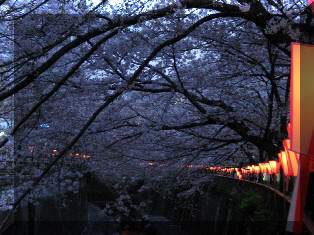

J-Pop Exchange Exclusive Interview with Michiru Yamane
Michiru Yamane
J-Pop Exchange Radio Show Exclusive Interview
Transcript
OAD: 4/23/2011
SeanBird (J-Pop Exchange):
Hi Ms. Yamane, thank you for taking the time to speak with us…
Michiru Yamane: Thank you very much for inviting me
to your program. I'm very
pleased to have this chance to be interviewed by an American radio
program for the first time in my life.
I have been looking forward to spending time with Sean today.
SeanBird:
Did your interest in music begin in your childhood?
How did you become interested in music?
SeanBird: Please tell us about your musical studies
and training.
Michiru Yamane: I started taking piano and organ
class seriously when I entered elementary school.
Yamaha Electone was the name of the electric organ.
During the electric organ class, I learned how to write music
notes which I played in improvisational style.
I really liked to play in free style, but I didn't like
writing down the notes.
However, this stress was dissolved after the emergence of new
recording systems and music software which almost all songwriters
are using today.
SeanBird:
How and when did you decide to pursue a career in music?
Was it always your intention to pursue a career in music?
Michiru Yamane: When I was 12 or 13, I had a vague
image of wishing to take music related work in my future adulthood.
I was very interested in working on writing songs for movies
and commercials. It was
during the time when family computers (Famicom or NES) had just
started selling at stores, and there weren't high quality TV games
like the ones we have today. I
also had a dream of becoming a jazz-pianist when I was a high school
student.
SeanBird:
Can you give us some insight into your writing process?
When you compose music, how do you progress from inspiration to
creation?
Michiru Yamane: At the beginning, I only have very
vague images of sounds and ideas, and I keep playing piano until I
can put them into one composition.
Little by little, rhythm, chords and melodies will come
together. And then, I start
to paint on and decorate the framework (or plan of the song) I made
by piano. We commonly call
the next process "orchestration." In
other words, speaking of the orchestral process metaphorically, it’s
like we speak of decorating, it’s like choosing the material and
color of walls and floors, the furniture you'd like to put into each
room when you build a new house and get ready for living there.
In actual work, I separate the song into separate parts and
phrases, so as to pick and choose the tone and instrument for each.
SeanBird:
Who are your musical influences?
Michiru Yamane: From classical music; very academic
songwriters such as Bach, Beethoven and Mozart.
Also from the modern music scene, Ravel, Debussy, and
Stravinsky influenced me a lot.
I was positively influenced by Jerry Goldsmith and some other song
writers from popular movie soundtracks, too.
Maybe younger generations don't know these names but I listened to
American pop artists a lot, such as Burt Bacharach, Barry Manilow,
Eric Carmen, the Eagles, the Doobie brothers... etc.
I think I can't list all the names right now because there
are too many.
By the way, Mr. Ryuichi Sakamoto has been my hero since he was in
the band named, Yellow Magic Orchestra.
SeanBird:
What music do you listen to?
Michiru Yamane: Currently, I listen to jazz music a
lot more often than before --Especially, Miles Davis, John Coltrane
and Charley Parker. I
also listen to Brazilian music such as Antonio Carlos Jobeam and
some other ethnic music apart from the music from western countries.
Also, I am very in to the unique sound of Japanese saxophone
player, Naruyoshi Kikuchi, these days.
SeanBird:
How did you become involved with composing music for videogames?
Michiru Yamane: When I was about to graduate from
university, I found a job opening at a game company.
So, I applied and I was hired.
At the beginning I was a member of the group which created
the game software for the Nintendo Famicom (family computer) games.
I made many jingles for the
game, "Hyper Olympic". And
then, I changed employment, going to Konami, and wrote more songs
for games, such as Goemon and TwinBee.
SeanBird:
Please tell us about the scoring process behind a production such as
Castlevania.
Where in the process do you, as a composer, become involved?
Michiru Yamane: Well... it depends on the size of
the project. Sometimes,
I'll be in the team from the start of the project, and then we begin
our work from scratch.
Although, when I have a really tight schedule, I will get into the
project when the storyboard is ready.
There are some cases that I get involved in the project when
the test version of the game is ready to be played.
In general, I take proper steps to meet the situation.
SeanBird:
Are there particular instruments that you prefer to use in your
compositions or orchestrations?
Michiru Yamane: I use piano to think through the
image and transform it into music. Through this process, 80% of the
instruments are decided in my mind.
In the next process, I like to use acoustic instruments, such
as strings and woodwinds for the actual arrangements.
Depending on the kind of
songs, I pick electric instruments, for example, distorted guitar
sounds and synthesizer.
Sometimes I choose folk instruments for the simple sounds.
SeanBird: Of all of the background music you have composed for the Castlevania series, are there any particular pieces that stand out as favorites or have a particular significance for you?
Michiru Yamane: I have been asked the same question
quite a lot and it's always very difficult to choose the one because
there are too many songs that I like.
If I have to pick one, I'd say "GEKKA NO YASOUKYOKU
(Symphony of the Night)" is my favorite.
This is the song I wrote over 10 years ago, but I still
receive messages that say "Very impressive song", or "I grew up with
this song" from my fans.
SeanBird:
Have you ever considered releasing a CD comprised entirely of your
own work?
Michiru Yamane: Yes, of course!
I have several ideas about
this, so I'm trying to realize this album little by little.
SeanBird: Do you have any current or upcoming projects that you would like to talk about?
Michiru Yamane: Right now, I'm working as one of
the songwriters for the shooting game named, "Otomedius X".
This game will be out in America, too.
In this project, creators are gathered from several different
countries and I can feel the international flavor of this project.
As far as I know, there are creators from America, the U.K.,
China and Japan.
Also, I'm taking part in a project run by the American game software
company, Reverge, the fighting game named, "Skull Girls".
In this project, I'm working
for an American game company for the first time in my life.
I'm sure people who play and
hear my new songs in this game can find and enjoy a new dimension in
my creation. As for
smaller projects, I wrote songs for short films.
I hope someday I can get a chance to write songs for full
length movies, because it's been my dream since childhood.
SeanBird:
In conclusion, is there anything you would like to talk about that
we have not discussed thus far?
Michiru Yamane: As you all know, a huge earthquake
struck Japan several weeks ago, and people are still suffering and
struggling from this disaster.
Many people lost friends and family when the Tsunami washed
away everything.
Moreover, the problem from the Fukushima Nuclear Plant occurred.
Still today, we are facing troubles after troubles.
However, we are receiving many heartwarming messages and
supplies from America and all over the world.
I have never felt such a
sense of close friendship like this before, and feel that we are
really connected as one.
I'd like to thank you for your support and love through this chance
to have my voice air-played on the radio.
I strongly believe Japan will revive someday again soon.
Personally, maybe my steps are slow, but I will keep creating
songs, and steadily make efforts to create good music that can
enchant your life even more.
Thank you.
SeanBird: Thank you
again for taking time out of your busy schedule to speak with us.
Michiru Yamane: My pleasure.
I'm very happy to have this chance to be on the J-Pop
Exchange. Thank you very much.